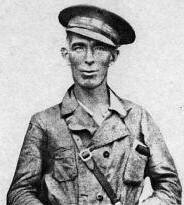Peter Daly (Irish republican) facts for kids
Quick facts for kids
Peter Daly
|
|
|---|---|
 |
|
| Born | 27 September 1903 Liverpool, England |
| Died | 5 September 1937 (aged 33) Benicassim Hospital, Valencia, Spain |
| Allegiance | |
| Service/ |
|
| Rank | Lieutenant |
| Unit | Connolly Column |
| Battles/wars | Irish Civil War Spanish Civil War |
Peter Daly (born September 27, 1903 – died September 5, 1937) was an Irish person who believed in socialism (a system where everyone shares resources) and was a republican (someone who wanted Ireland to be a republic, free from British rule). He fought in the Irish War of Independence and later volunteered in the Spanish Civil War. Peter Daly died while serving with the International Brigades in Spain.
Contents
Peter Daly's Early Life and Beliefs
Peter Daly was born in Liverpool, England, on September 27, 1903. His parents were Irish immigrants. In late 1911, his family moved back to County Wexford, Ireland, to a village called Monageer near Enniscorthy.
Peter's father, Lar Daly, was a strong supporter of Irish independence. He helped start the Tom Clarke Society in Liverpool and was part of the Irish Republican Brotherhood. His father's beliefs greatly influenced Peter.
From a young age, Peter joined Na Fianna Éireann, a youth group linked to the Irish republican movement. This led him to join the Anti-Treaty forces during the Irish Civil War. He was captured and spent 17 months in prison. He was released after going on a hunger strike for 18 days.
Joining the British Army and Returning Home
After the Irish Civil War, Peter Daly moved to England. He worked different jobs for a while. In 1926, he joined the British Army. He served for four years and became a Sergeant. However, he was later asked to leave the army because he was secretly sending small weapons back to Ireland.
After returning to Ireland, Peter Daly became a training officer for local IRA groups in Wexford. By 1934, he joined other left-wing activists in the Republican Congress. This was a group that supported both socialism and an independent Irish republic. Famous members included Peadar O'Donnell, Frank Ryan, and Michael O'Riordan.
Supporting the Spanish Republic
In 1936, a civil war started in Spain. The members of the Republican Congress strongly supported the side fighting for the Spanish Republic. They were upset that other groups in Ireland, like Eoin O'Duffy's Blueshirts, were supporting the Fascist side. So, the Republican Congress decided to send volunteers to Spain, just as the Blueshirts were doing. Peter Daly was one of these socialist volunteers.
Peter Daly in the Spanish Civil War
Peter Daly and other Irish volunteers joined the Connolly Column. This group was part of the Lincoln Battalion, which belonged to the XV International Brigade. They began fighting in 1937.
Because of his past experience in the Irish Civil War and the British Army, Peter Daly quickly became an officer. He served as a section leader and company commander. He became a Captain after the Battle of Brunete, which was a popular decision among his comrades.
Peter Daly and his unit fought in several important battles. They saw action in the Battle of Pozoblanco and near Guernica. They also took part in the Battle of Jarama and later fought in the Aragon Offensive.
The Battle of Belchite and Daly's Death
In late August 1937, Peter Daly was involved in the Battle of Belchite. His unit was given the task of capturing the town of Quinto. On August 25, they were ordered to capture Purburrel Hill, a high point south of the town. About 500 enemy soldiers were dug in there, protected by barbed wire and strong concrete bunkers. German advisors had helped build these defenses.
Daly's unit faced many challenges. They were not supported by other troops and were outnumbered by the defenders. They suffered many losses, and Peter Daly was wounded in his stomach.
On August 26, with more support, the XV International Brigade finally broke through the enemy lines. This led to the capture of 300 enemy soldiers. Peter Daly was taken to Benicassim Hospital near Valencia. Sadly, he died from his wounds on September 5, 1937.
Today, there is a memorial in his home village of Monageer. It remembers his life and his fight for what he believed in.
See also
 | Jewel Prestage |
 | Ella Baker |
 | Fannie Lou Hamer |

